Back Home, the new novel by Spanish writer Jesús Carrasco (49) is not only a portrait of a family and two generations, but also a portrait of Spain itself. 'Today's literature gives social groups a voice they didn't have before.'
Three years of work and two complete novels landed in the dustbin before Jesús Carrasco published his new novel Back home completed. After his worldwide breakthrough with The flight in 2013, followed a few years later by The ground beneath our feet, he swapped his hometown of Seville for Edinburgh for a few years. But writing didn't really want to flow there. 'When I finished a novel, I noticed that I didn't really recognise myself in the story. It didn't live. I started a new book, but it ended the same way. I think I had strayed too far from my emotions, from what I knew. I literally needed to stay closer to home.'
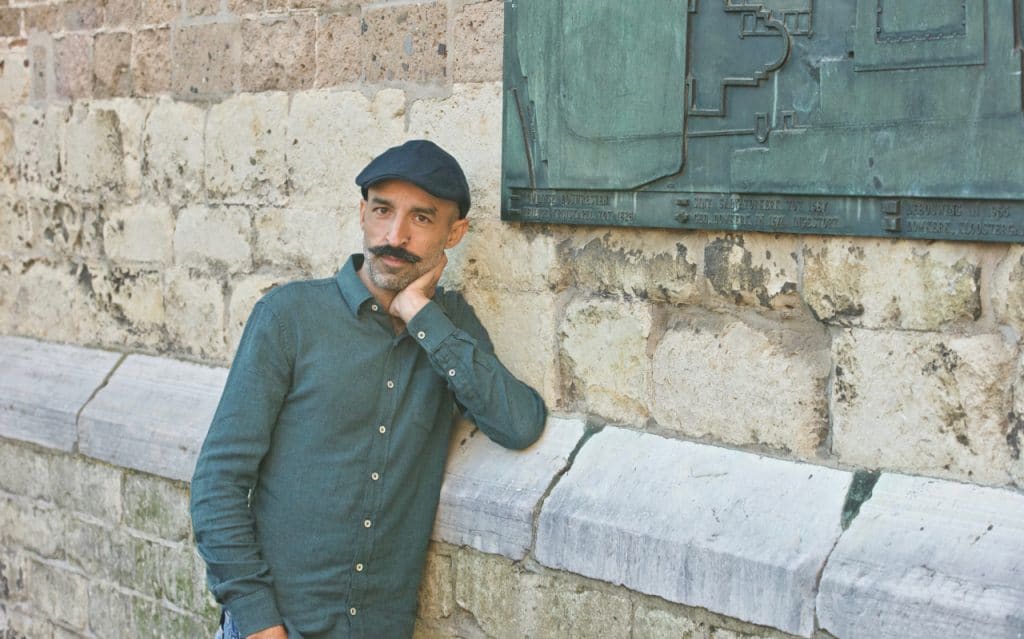
Back in Seville, he started working on a new story, and hup, in just six weeks, a novel of almost three hundred pages was on paper. In Back home protagonist Juan, an early-thirties man living in Scotland, returns to his native Spanish village because of his father's funeral. For a week, he thinks, but things turn out differently. His sister Isabella, who is angry with him for having had to shoulder all the care of their parents alone for years, seizes the opportunity to have her brother take over her duties so that she can finally go abroad for a year for her work. As their mother is demented, Juan is forced to take on responsibilities he has always shied away from.
Dictatorship
Back home is a story about the clash between two generations, the friction between past and future, between city and countryside. This makes it not only a portrait of a family, Carrasco says, but also of contemporary Spain itself.
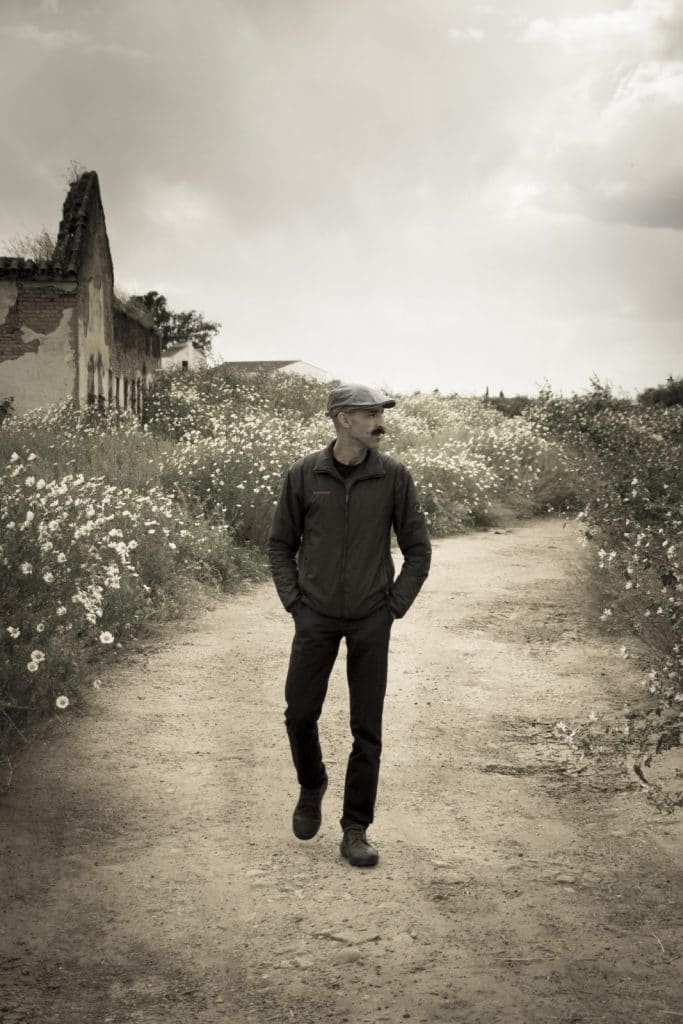
What characterises your parents' generation?
'My parents' generation lived through the effects of a civil war and forty years of dictatorship. There was also the great influence of Catholicism and long-term poverty. It is a generation of hard workers, who did not learn to express their feelings and emotions. They worked day and night to raise their families and rebuild their country. My parents had six children and one small salary. I always felt loved, but they never told us they loved us, which is very normal for me to say to my children now.'
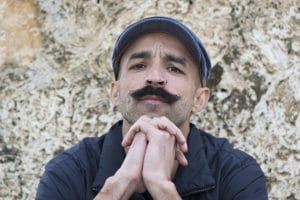
How did that lack of showing emotions affect you?
'Although I am better able to express my feelings, I did inherit a certain silence, especially from my father. He was a very quiet man. Waiting, observing, keeping your opinions to yourself, that was his basic attitude, probably partly because at the time of dictator Franco's rule it was dangerous to share your views. Back home is not an autobiographical novel, and I am not Juan, but I did magnify in him certain traits of myself when I was younger, such as his lack of caring and the fact that he pays little attention to what really matters. The landscape, the small rural village, the kind of family and the silence - these are elements I know from my own life. But writing is mainly a voyage of discovery for me, a way of exploring topics.'
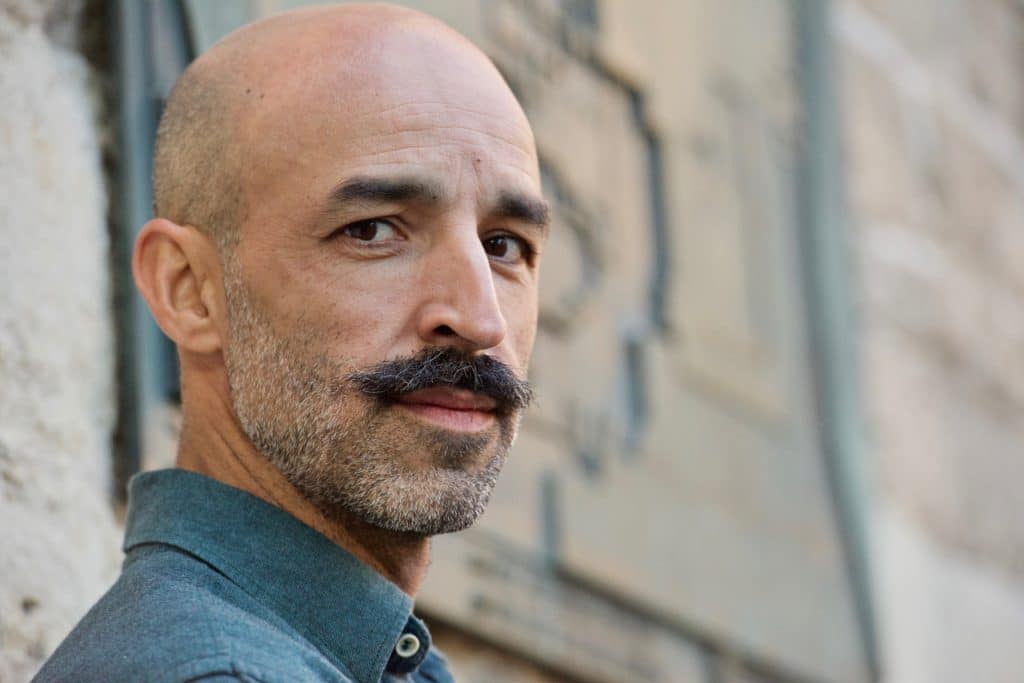
What was that with this book?
'In Spanish literature, many stories revolve around the relationship between mother and daughter or father and son. But I hardly know any novels that centre on the relationship between mother and son. That reflects our society. It is an unwritten law that the daughter takes care of her parents at the end of their lives. Men work outside the home, start families and take care of their families financially, not emotionally; they don't cook, are unaware when one of the children has a performance at school. Thankfully, that is starting to change now. It is no longer just the women who take care of their children and parents; they too can study and work. But there is still much work to be done. The differences between men and women, for instance when it comes to salary, are still very big.'
Juan is forced to care for his demented mother. As a result, he actually becomes a real adult: for the first time in his life, he has to take responsibility and face up to his own behaviour.
'That is an important point, yes. One of the characteristics that typifies the younger generations is that we don't really mature until much later. Unlike our parents, who started working at 14 and had children in their early twenties, we put off major responsibilities.'
The relationship between man and his native soil is also a major theme in your novels. What fascinates you about that?
'I think this fascination stems from a sense of being uprooted. My family comes from Extremadura, where I grew up in a small rural village for the first few years of my life. When I was 4, we moved to Toledo, in central Spain. Later I went to study in Madrid, and still later I moved to Seville, and then to Edinburgh and back to Spain again.
Disorientation
That feeling of being uprooted, of not knowing where I belong, has accompanied me since early childhood. The positive side is that I can relate well to all those millions of displaced people in this world and what that means, not only in a geographical and physical sense, but also on an emotional level. The less pleasant side is a constant sense of disorientation.
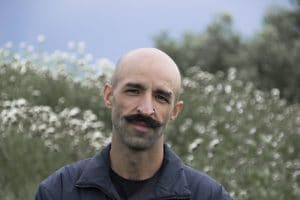
This uprooting I experience is a feeling familiar to a lot of Spaniards. Besides mass emigration of Spaniards have been to the United States in the nineteenth century, millions have also immigrated within Spain in recent decades, moving away from rural areas to big cities like Madrid and Barcelona.
Those great population movements caused a national trauma whose effects we still feel today. It is difficult to define a shared Spanish identity. Several regions want independence, which is accompanied by violence. So on the one hand there is a political and social movement trying to strengthen cohesion, and on the other there is a movement trying to split the country. Spain is a very complex country, constantly under discussion.'
What can literature mean in that national discussion?
'For a long time, the focus was mainly on urban life, the intellectual elite, but at present, it is precisely this rural history that is one of the main themes in literature, and people working in the country are the main characters. Many writers, including myself, relate to the stories and background we have inherited from our parents, from different corners of our country. For instance, a young writer recently dedicated a novel to coal mines and mine workers.
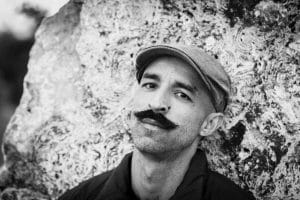
All these stories together give a more complete picture of Spain and give social groups a voice they did not have before.
In addition to all the political and social debates there are in newspapers and on social media and television, books thus offer people a chance to think about and engage with an issue in a calmer, slower and more thoughtful way.'
Have you actually managed to give yourself roots after all?
'Yes, in a way that I myself did not expect. Because more than a place, it is ultimately my family and loved ones who give me roots. They are my home.'
Jesús Carrasco, Back home. Translated by Arie van der Wal, 288 p., Meulenhoff, € 21.99
